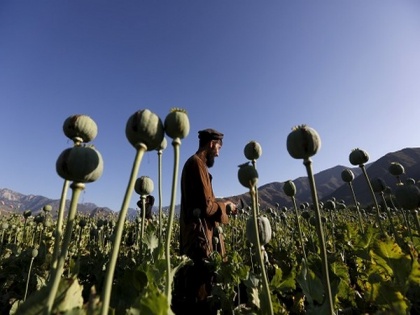UN seeks Cranfield University's help to develop AI to monitor Afghanistan's opium production
By ANI | Published: January 17, 2023 12:48 PM2023-01-17T12:48:44+5:302023-01-17T18:20:02+5:30
The UK's Cranfield University on Monday released a statement indicating a research partnership with the United Nations (UN) to ...

UN seeks Cranfield University's help to develop AI to monitor Afghanistan's opium production
The UK's Cranfield University on Monday released a statement indicating a research partnership with the United Nations (UN) to help the UN develop artificial intelligence (AI) to support the monitoring of illegal opium production in Afghanistan, Khaama Press reported.
Under the research program, the researcher will use AI to interpret satellite imagery which will help them trace where in Afghanistan, crops are being used for drug production. According to Daniel Simms, Cranfield University lecturer, the partnership between the University and the UN lasts until July 2023.
The report shows that Afghanistan is still the largest producer of poppy cultivation globally. The total poppy cultivation area is estimated at 233,000 hectares, mainly concentrated in the southwestern parts of the country, approximately 73-80 per cent, as reported by United Nations Office on Drugs and Crime (UNODC) in 2022, according to Khaama Press.
The process will be automated using AI which will enable the monitoring of the extent and evolution of poppy cultivation in the country and help the government tackle the issue of these crops.
More than USD 8.62 billion has been invested by the United States in counternarcotic operations in Afghanistan over the past 20 years. Despite the investment, the country continues to be the world's top producer of opium, reported Khaama Press.
In 2022, the opium crop in Afghanistan was the most profitable in years with cultivation up by nearly one-third and prices soaring, according to UNODC research.
Opium cultivation in Afghanistan - latest findings and emerging threats is the first report on the illicit opium economy since the Taliban, which assumed power in August 2021, banned the cultivation of opium poppy and all narcotics in April 2022.
"Afghan farmers are trapped in the illicit opiate economy, while seizure events around Afghanistan suggest that opiate trafficking continues unabated," said UNODC Executive Director Ghada Waly upon the survey's launch.
"The international community must work to address the acute needs of the Afghan people, and to step up responses to stop the criminal groups trafficking heroin and harming people in countries around the world."
"Opium prices have soared following the announcement of the cultivation ban in April. The income made by farmers from opium sales more than tripled from USD 425 million in 2021 to USD 1.4 billion in 2022 - the new figure equivalent to 29 per cent of the 2021 value of the agricultural sector. In 2021, the farm-gate value of opiates was only worth some 9 per cent of the previous year's agricultural output," the UNODC report said.
However, the increase in income did not necessarily translate into purchasing power as inflation has soared during the same period, with the price of food increasing on average by 35 per cent.
( With inputs from ANI )
Disclaimer: This post has been auto-published from an agency feed without any modifications to the text and has not been reviewed by an editor
Open in app